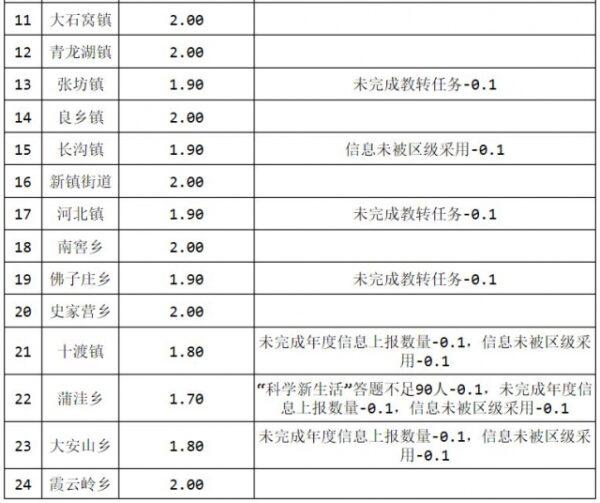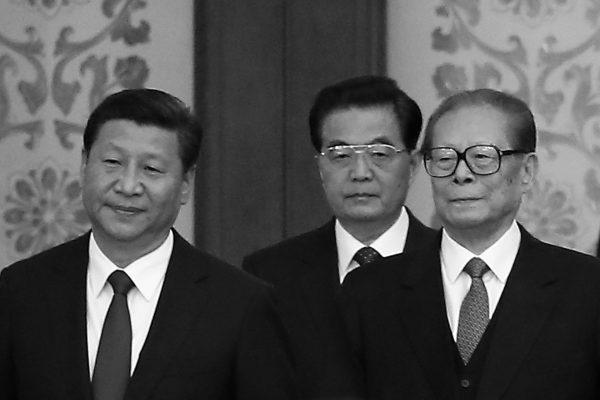Internal documents obtained by The Epoch Times indicate that the functions of the 610 Office, a high-level commission that once played a key role in the Chinese Communist Party’s campaigns against faith and religion, are still being actively pursued by successor organizations.
Formally known as the Central Leading Group on Preventing and Dealing with Heretical Religions, the 610 Office was established on June 10, 1999, in preparation for the CCP’s persecution of the Falun Gong spiritual practice. The repression, ordered by then-Party leader Jiang Zemin, commenced that July and was the biggest mass campaign the regime had mounted since the Cultural Revolution.
The recently acquired documents are reports from 2019 and 2018 concerning the domestic and overseas activities of organizations tasked with “anti-heretical religion” work in Beijing’s Fangshan District.
The 2018 report, “Status of [policy] implementation in the Party and government, and among the masses,” contains details about the Fangshan district-level 610 Office’s “foreign affairs work”—propaganda against “heretical religions” in Canada.
“Heretical religions,” or “xie jiao” in Chinese, is a term used by the CCP to smear faiths in China not controlled by the Party’s officially sanctioned religious organizations. The term is often mis-translated into English as “cult.”
The 2019 report is an assessment issued by the Fangshan PLAC’s “Anti-Heretical Religion Guidance Branch.” Titled “Status of work in preventing and handling heretical religions,” the document evaluates the performance of 93 Communist Party and government institutions throughout the district in upholding the CCP’s anti-religious policies.
While the 2018 document makes direct reference to the district-level “610 Office” as being responsible for the “foreign affairs work,” the term is not seen in the 2019 report, reflecting the Office’s dismantling.
However, the assessment suggests that the Guidance Branch is empowered with extralegal authority to enforce those policies across broad sections of Chinese society—in other words, the same powers that the 610 Office once wielded.

Coordinating Persecution
First taught in 1992 in northeastern China, Falun Gong is a meditative discipline based on the principles of truthfulness, compassion, and tolerance. By the end of the decade, Chinese state bodies estimated that there were tens of millions of practitioners, many of whom credited Falun Gong with bringing them spiritual and physical improvement.The CCP has a long history of violently suppressing faith as “feudal superstition.” Given the number of Falun Gong practitioners in the country, the CCP’s persecution was a massive undertaking.
As seen in the Fangshan district PLAC Anti-Heretical Religion Guidance Branch’s assessment, the Party’s all-of-society approach to persecuting Falun Gong and other faiths remains in place. The Guidance Branch granted or deducted points to various institutions based on their performance; for example, if adherents successfully held a protest against the persecution, the institution deemed responsible for not preventing the incident would lose points.
Similarly, if a corrective facility did not make progress in “transforming” a Falun Gong practitioner—that is, making him or her give up the practice, it would also be penalized.
Struggle Overseas and at Home
The 2018 report mentioning the Fangshan 610 Office highlights the continuity between the Office and the PLAC’s Guidance Branch, as well as the global reach of the anti-Falun Gong campaign.According to the report, the 610 Office’s “foreign affairs work” in Canada involved “overseas struggle” and was funded by Fangshan district authorities.

“In accordance with the requirements of the [CCP] Central Committee and the municipal Party Committee, the 610 Office of the Fangshan District Committee made visits to Canada’s Montreal, Toronto, and Ottawa to carry out a campaign against heretical religions,” the report said.
The district 610 Office’s “overseas struggle” activities in Canada were focused on promoting hatred of Falun Gong, including holding “anti-cult” symposiums and paying local Chinese-language media to run propaganda against the practice. For instance, the 610 Office operatives teamed up with the Beijing-linked China Press, known in Mandarin as Qiaobao, to run anti-Falun Gong content every week, and produce 400,000 propaganda leaflets.
The information in the 2018 document fits with a long string of incidents over the course of the persecution, in which pro-CCP groups have smeared, harassed, and sometimes assaulted Falun Gong practitioners overseas. Individuals promoting anti-Falun Gong propaganda in Flushing have been linked to the 610 Office in Tianjin, a city near Beijing.
Meanwhile, authorities in the provinces of Guangdong and Inner Mongolia vowed to keep up the fight against “heretical religions” even as the CCP virus epidemic continues to spread throughout China.
The Party Line and Factional Legacy
According to analysts, scrapping the Office represented a move by Xi to further consolidate his power over the Chinese regime security forces, which had been dominated by the former Communist Party leader Jiang and his allies throughout the 2000s.Since coming to power in 2012, the Xi leadership has grappled with the Jiang faction’s influence, launching an extensive anti-corruption campaign to root out the latter.

The persecution of Falun Gong, while a matter of Party policy, is strongly tied to the political legacy of the Jiang faction. Many top officials associated with Jiang played key roles in planning and carrying out the brutal campaign, such as former head of the 610 Office and central PLAC, Zhou Yongkang.
In 2013, then-director of the 610 Office, Li Dongsheng, was investigated for corruption, and sentenced in 2016.
Other Jiang faction members, such as Bo Xilai, the former Party secretary in southeastern China’s metropolis of Chongqing, and the late Gen. Xu Caihou are primary suspect in the mass murder of Falun Gong practitioners for their organs. Zhou, Bo, and Xu were purged in the early years of Xi’s leadership.
Even as tightening Communist Party rule vests more authority in the Xi leadership, the struggle between Xi and his factional rivals continues unabated.
On April 19, 2020, senior Chinese public security official Sun Lijun was placed under investigation. In addition to playing a leadership role in the regime’s efforts to combat the CCP virus in Beijing, and his oversight of the Party’s suppression of the Hong Kong pro-democracy protests last year, Sun had a long history of association with the Jiang faction, and was the 610 Office’s last listed deputy director.
At the time of his investigation, Sun was also head of the Ministry of Public Security’s 26th Bureau, the police branch in charge of persecuting Falun Gong and other faiths. No replacement director has been announced.




